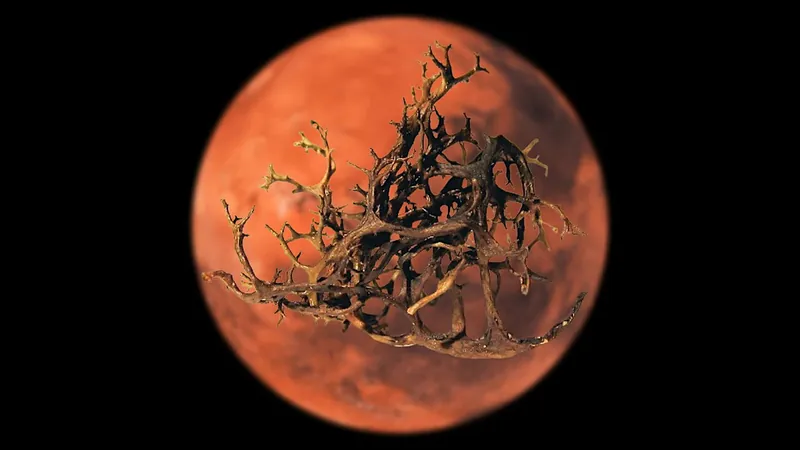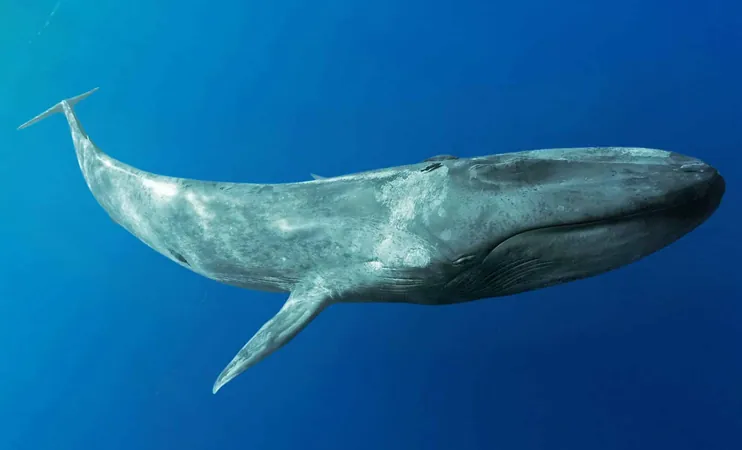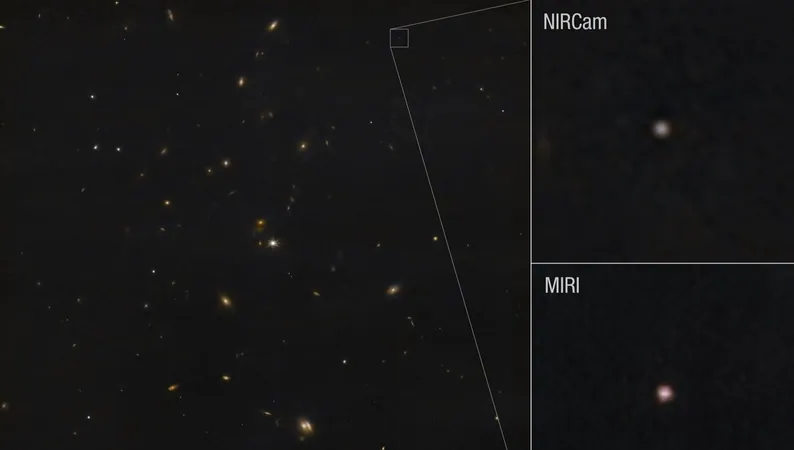
Could Lichens Pave the Way for Life on Mars? Groundbreaking Study Reveals Surprising Resilience in Simulated Martian Conditions
2025-04-02
Author: Arjun
In a remarkable discovery that could shift the paradigm of astrobiology, researchers from Poland have found that lichen can survive and even thrive under simulated conditions akin to the Martian environment. This finding raises intriguing questions about the possibilities of life on Mars despite its harsh landscape.
The study demonstrated that lichen remained metabolically active even while exposed to ionizing radiation mimicking what bombards the surface of Mars. Traditionally, scientists have dismissed the idea that life could exist on the Red Planet due to its extreme conditions, but this new research could challenge that narrative, setting the stage for future exploration and study of extraterrestrial life.
The Unyielding Power of Lichen
The resilience of lichen is nothing short of astounding. These hardy organisms are commonly found in some of the most extreme environments on Earth, from the arid deserts to frozen tundras. Featuring low metabolic rates and minimal nutritional needs, lichens can endure prolonged periods without water, making them ideal candidates for survival studies in inhospitable settings.
Lichens are symbiotic partnerships between fungi and algae or cyanobacteria, with the fungal component playing a crucial role in their survival. The research focused particularly on the species Diploschistes muscorum, which displayed an impressive ability to resist simulated Martian conditions with X-ray radiation that mirrored periods of intense solar activity.
Innovative Research Approach
The team from Jagiellonian University conducted a series of experiments that simulated the Martian atmosphere, pressure variations, and extreme temperatures. The study stood out because it was one of the first to incorporate ionizing radiation into the simulations, previously regarded as a major threat to potential life forms on Mars.
Throughout the five-hour tests, researchers witnessed how D. muscorum adapted to the simulated dark and radiation-heavy environment. Its defensive mechanisms remained intact, showcasing its remarkable potential for survival on other planets. Lead author Kaja Skubala stated, "Our study is the first to show that the metabolic processes of the fungal partner in lichen symbiosis remained active in an environment similar to Mars."
The Road Ahead: Colonizing Mars?
Lichens have a unique ability to colonize nutrient-poor substrates on Earth, suggesting that under specific conditions, they could foster a new ecosystem on Mars. There is a possibility of liquid water existing on Mars under certain conditions, which, combined with the resilience of lichens to radiation, opens doors for future research into the planet's habitability.
Skubala emphasized the importance of these findings for understanding how organisms adapt and survive in extraterrestrial environments, particularly concerning one of the most critical barriers to life: ionizing radiation. The study advocates for continued exploration of lichen’s radiation resistance, as well as testing these organisms on the Martian surface.
In summary, this groundbreaking research not only enhances our understanding of lichen adaptations but also offers a compelling avenue for investigating biological processes that could one day lead to the colonization of the Red Planet. The implications for astrobiology and the search for life beyond Earth are nothing short of exciting, beckoning with the promise of new worlds waiting to be discovered.



 Brasil (PT)
Brasil (PT)
 Canada (EN)
Canada (EN)
 Chile (ES)
Chile (ES)
 Česko (CS)
Česko (CS)
 대한민국 (KO)
대한민국 (KO)
 España (ES)
España (ES)
 France (FR)
France (FR)
 Hong Kong (EN)
Hong Kong (EN)
 Italia (IT)
Italia (IT)
 日本 (JA)
日本 (JA)
 Magyarország (HU)
Magyarország (HU)
 Norge (NO)
Norge (NO)
 Polska (PL)
Polska (PL)
 Schweiz (DE)
Schweiz (DE)
 Singapore (EN)
Singapore (EN)
 Sverige (SV)
Sverige (SV)
 Suomi (FI)
Suomi (FI)
 Türkiye (TR)
Türkiye (TR)
 الإمارات العربية المتحدة (AR)
الإمارات العربية المتحدة (AR)